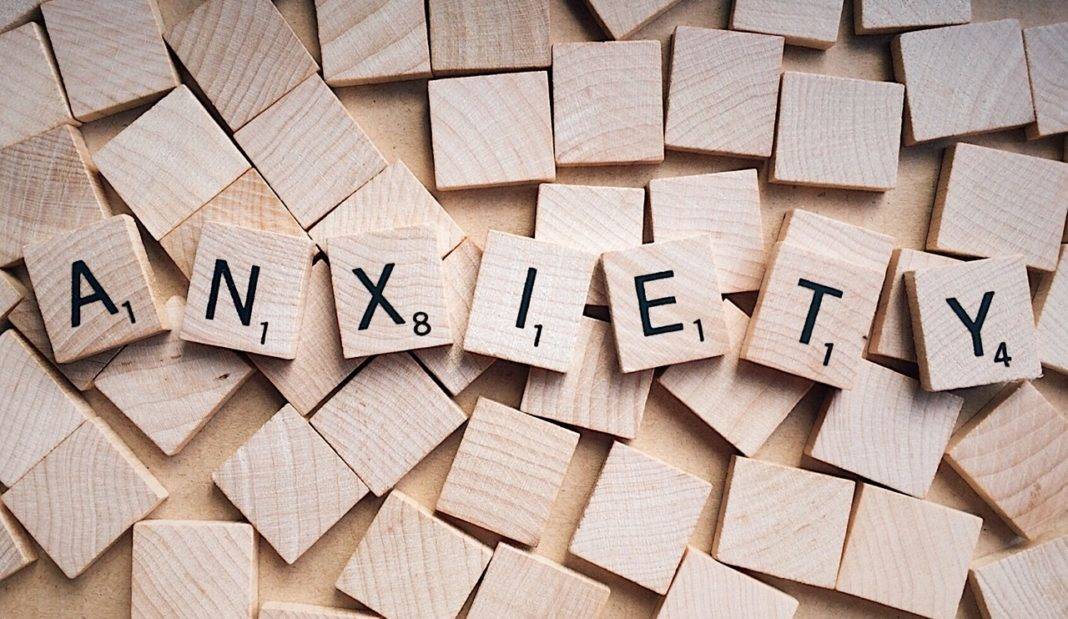Even though anxiety disorders are treatable, only about a third of people suffering with anxiety actually seek treatment. Prescription medications often come with a long list of side effects that can negatively affect daily life.
According to the Anxiety and Depression Association of America and National Institute of Mental Health anxiety is the most common mental illness in the United States, affecting approximately 40 million adults.
Here are 5 signals that you’ve reached the end of your rope and 5 ways to keep on climbing.
- Overly Forgetful
Do you remember if you turned off the iron this morning? Did you forget to take the garbage out last night? Stress affects every part of the body including the brain. It causes the mind to become distracted and overly stimulated resulting in memory loss. If you routinely forget things, it could be an indication of too much stress.
- Lack of Sleep
Worry and anxiety can keep your mind from shutting off and you from falling asleep. If you do manage to drift off, stress can cause your sleep to be fitful and irregular. Unfortunately, this scenario can snowball even further. Lack of sleep can cause you to think irrationally and make poor choices which can bring on, even more, stress.
- Frustrated, Irritable, and Angry
Do you regularly feel exhausted, have trouble concentrating, and constantly feel disorganized? Are you frequently crying, struggle with depression, or quickly become angry? Stress increases negative emotions and releases higher and more prolonged levels of the negative hormone cortisol into the bloodstream.
- Digestive Problems
Stomach making strange noises? Are you constipated one minute and running for the bathroom the next? Stress causes an overabundance of hormones such as cortisol and adrenaline to be released. These hormones can play havoc on the very sensitive nerves in the digestive system. Overstimulation of these nerves can cause bloating, irregularity, diarrhea, heartburn, inflammation, etc.
- Low Libido
Never seem to be in the mood? Any time hormones become unbalanced, such as when you’re stressed, your libido will suffer. Hormones associated with worry and anxiety can have an impact on metabolism. When metabolism slows, you can feel sluggish or unintentionally gain weight. When this happens low self-esteem can occur, making you less interested in everything including sex.
Ways to Manage Anxiety
While this is not an all-inclusive list, these symptoms can indicate a stress related problem. Whether you suffer from any or all of these stress symptoms, it is important to learn ways to cope. If left untreated, stress can cause serious health problems. Listed are a few ways to help handle life’s difficult moments.
1.) Learn to Relax
Practicing meditation and learning deep breathing techniques will teach the body and mind to relax. Creative visualization is another type of relaxation that works by mentally picturing something or someone that makes you happy. Some have found getting a massage or acupressure (a form of touch therapy) can help to ease stress away.
2.) Change Bedtime Routine
Make and follow a bedtime routine to allow yourself time to unwind before lying down. Turn off the television, cell phone, and all electronic devices two hours before bedtime. Consider taking a bath, reading a book, or doing other quiet activities before retiring. If stress is causing digestive issues, eat a light dinner and refrain from consuming anything a couple of hours before going to bed. Make your bedroom inducing to sleep. Keep your sleeping area cool and the lights turned down.
3.) Eat a Healthy Diet
When a person is stressed, it is easier to lean toward eating foods high in fat and calories. This habit can further complicate feelings of anxiety and tension. However, eating a well-balanced diet consisting of whole grains, lean proteins, fish, and fresh fruits and vegetables can keep your mind sharp, energy levels high, and fight stress more efficiently.
4.) Get a Hobby
One of the best ways to deal with worry is to find something else to do with your time. Find a hobby such as gardening, playing sports, working jigsaw puzzles, or hiking. Get your mind off your problems and on a fun, new activity.
5.) Try a 5-HTP Supplement
5-HTP is an essential amino acid naturally produced in the body that works as a neurotransmitter in the brain and central nervous system signaling the body to produce more serotonin. Serotonin is that natural chemical produced by the brain that affects sleep, appetite, mood, temperature, and pain sensation. An imbalance of serotonin is often one of the causes of anxiety and stress as well. 5-HTP supplements work very similarly to the way prescription medications like selective serotonin re-uptake inhibitors do.
For people who have tried prescription medications to manage their anxiety but did not have a successful outcome due to harsh side effects caused by such medications, 5-HTP can be a welcomed alternative. Of course, just like any other medication or supplement, 5-HTP does have side effects, but they are most often much less severe than those of prescription drugs.
If a person suffering from anxiety has not found success with a prescription medication or prefers to stay away from prescription drugs, 5-HTP is a good alternative to try. As more and more research is being done on the supplement’s effectiveness it will no doubt become a very popular choice in the treatment and management of anxiety.
Along with these coping mechanisms, keeping a journal, working on better time management, and exercising can help as well. Lastly, analyzing situations you find stressful can help you to handle each problem more efficiently. Stress left unchecked can weaken the body and cause your health to deteriorate. Apply these coping mechanisms for managing stress, and take back control of your life today!
Sources:
adaa.org/about-adaa/press-room/facts-statistics nimh.nih.gov/health/statistics/prevalence/any-anxiety-disorder-among-adults








